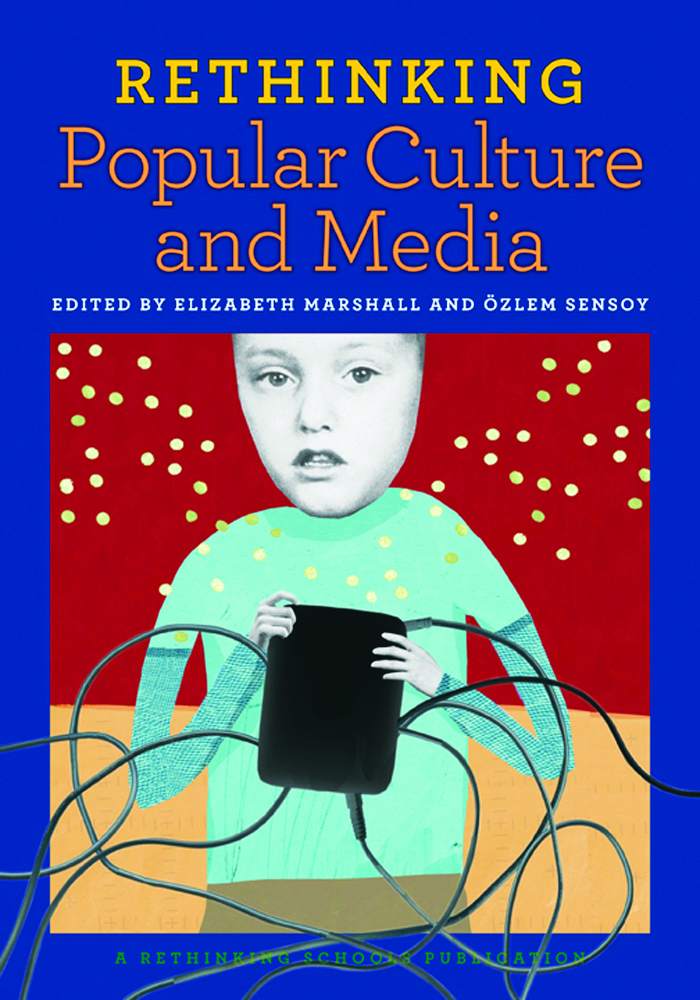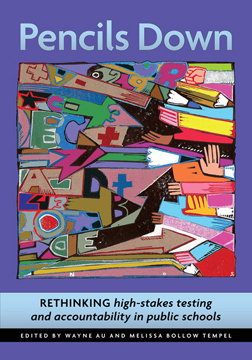Recently, a friend told me that a former high school student of mine named his car “Terry” after me. When she asked him why, he explained, “She’s a little older, she’s strong and tough, and she can handle anything, just like my old car; watching her as my teacher made me realize that I can be strong and accomplish things too.”
This former student of mine struggled mightily with sophomore chemistry and, before every test, he spent hours in my classroom after school working problems on the board with other students and taking periodic breaks for making jokes, watching a silly YouTube video, or writing with the dry erase markers on the arms of his friends. I thought I was teaching him chemistry; turns out, he learned how to stay strong and succeed. His comment, and the picture in my mind of an old beater car with my name cruising the streets of Milwaukee make me think about the unintended lessons teachers teach, about the things we leave with our students of which we might not be aware.
An all-night-long Glee-watching marathon over winter break also made me think about our legacies as teachers. While I realize that Glee isn’t free from criticism, particularly for its lackluster, individualistic treatment of the many forms of bullying going on in the school (see “TV Bullies: How Glee and Anti-Bullying Programs Miss the Mark,” by Gerald Walton, p. 216, Rethinking Popular Culture and Media), the last ten minutes of the final episode made me think about the kinds of impressions we leave with our students and the unintended lessons we teach, so much so that I decided to use a segment of the episode on the first day of the spring semester in an undergraduate teacher education course I teach.
For those not well-versed in Glee, the show centers on a high school singing club in Ohio. Resurrected by a former Glee Club member and current Spanish teacher at the school, Mr. Schuster, the club is often on shaky ground with the administration and always in danger of having its funding cut. The first season ends with the club convinced that after not placing at the Regional competition, the club is history.
The last ten minutes of the season begins with the Glee club members inviting Mr. Schuster into the auditorium where the students are on stage ready to say goodbye to their teacher, in song of course. Yet they begin, one by one, describing the ways in which he and Glee club made an impact on their lives.
Santana, a bit of a badass cheerleader, always ready with a cutting remark for her fellow Glee club members, states that as the year started, “she hated everyone in the club.” Michael Chang, one of the best dancers in the group, says that before Glee club, “he only danced in his room.” Kurt, a young man who comes out as gay during the school year, points out that he “wasn’t honest with who [he] was” until the camaraderie within the group helped him realize that he could be himself. Finn, a young man whose father died when Finn was a young boy, tells Mr. Schuster that he was a like a father to him, showing him a model of “how to be a man.” Finally, Rachel, the quirky diva of the group, tells Mr. Schuster that “no matter what the judges said, we won. We had you as a teacher.”
After their statements, the group sings “To Sir with Love” to Mr. Schuster, and seasoned Glee fans will completely understand the looks between members as well as the appropriate lines of the song as sung by specific members.
As I listened to the students’ comments and the lyrics of the song, I noticed that not one student mentioned meeting standards, using a packaged music curriculum (for Mr. Schuster’s curriculum often came from student interests and concerns), getting a good ACT score, or mastering a specific objective that was listed every day on their classroom board. While I realize that this is an after-school club on a television show in which people burst into song in school hallways, the stark contrast between the students’ statements and official school goals made an impression on me.
In my class, towards the end of the first day, after showing this clip, I asked my students to think about and write from the following prompt and return with their writing for the next class:
Imagine yourself as a teacher, about 5-8 years from now, in a situation similar to the one in which Will Schuster finds himself in this clip from the Season 1 final episode of Glee. What would your students say if they were expressing some thoughts about what you’ve given them? In other words, what do you hope your legacy might be as a teacher?
My students wrote things like “I want my students to think for themselves, to be advocates for justice and equity, to realize that I cared about them as people, to be critical readers and thinkers, to know that I wasn’t just a teacher of math or science, but a person who noticed and cared about them.” Similar to the Glee episode, not one mentioned hoping that his students would remember meeting math standard 1.11.12 about linear equations, about being a teacher who recorded grades in the electronic grading program on time, about following the Success for All reading scripts to perfection, or about only using the district-approved curriculum. All of the future teachers in my class, most of them juniors or seniors in their teacher education program, want far more for their students than teaching them what’s on a test.
I worry about my students, just a little over a year away from their first teaching positions. Will the craziness of testing, of school district officials entering their classrooms to take away materials, of control of their curriculum from outside sources, lead them away from realizing their dreams as teachers? Will their students have the kinds of experiences in school that lead them to sing in gratitude for the larger life lessons they learned in school?
As an in-class follow-up activity, I asked my students to re-read their responses and to write an additional paragraph stating one specific way in which they would work this semester to make their desired-for legacy come true. They shared those paragraphs with a partner in class, making commitments to one another to stay true to their larger goals.
In these times, perhaps now more than ever, all of us who teach might remind ourselves of why we do what we do. If the conditions are making it harder and harder to be the kind of teachers we want to be, we might make the extra effort to commit to act in and beyond our classrooms to realize the legacies that mean the most to us and to our students.
Terry Burant is a Rethinking Schools editor and an instructor in the department of Educational Studies at the University of Wyoming.
Related Resources
Rethinking Schools has long been attentive to the messages in popular culture and media that saturate our lives. We devoted an entire book to it, and carved out a section on “Minding Media” in our upcoming Rethinking Elementary Education.
 Rethinking Popular Culture and Media, edited by Elizabeth Marshall and Özlem Sensoy. This anthology includes outstanding articles by elementary and secondary public school teachers, scholars, and activists who examine how and what popular toys, books, films, music, and other media “teach.” The essays offer strong conceptual critiques and practical pedagogical strategies for educators at every level to engage with the popular.
Rethinking Popular Culture and Media, edited by Elizabeth Marshall and Özlem Sensoy. This anthology includes outstanding articles by elementary and secondary public school teachers, scholars, and activists who examine how and what popular toys, books, films, music, and other media “teach.” The essays offer strong conceptual critiques and practical pedagogical strategies for educators at every level to engage with the popular.
 Rethinking Elementary Education, edited by Linda Christensen, Mark Hansen, Bob Peterson, Elizabeth Schlessman, and Dyan Watson.The articles in this volume offer practical insights about how to integrate the teaching of content with a social justice lens, how to seek wisdom from students and their families, and how to navigate stifling tests and mandates. Teachers and parents will find both inspiration and hope in these pages.
Rethinking Elementary Education, edited by Linda Christensen, Mark Hansen, Bob Peterson, Elizabeth Schlessman, and Dyan Watson.The articles in this volume offer practical insights about how to integrate the teaching of content with a social justice lens, how to seek wisdom from students and their families, and how to navigate stifling tests and mandates. Teachers and parents will find both inspiration and hope in these pages.
 Pencils Down: Rethinking High Stakes Testing and Accountability in Public Schools, edited by Wayne Au and Melissa Bollow Tempel. Through articles that provide thoughtful and emotional critiques from the frontlines of education, Pencils Down deconstructs the damage that standardized tests wreak on our education system and the human beings that populate it. Better yet, it offers visionary forms of assessment that are not only more authentic, but also more democratic, fair, and accurate.
Pencils Down: Rethinking High Stakes Testing and Accountability in Public Schools, edited by Wayne Au and Melissa Bollow Tempel. Through articles that provide thoughtful and emotional critiques from the frontlines of education, Pencils Down deconstructs the damage that standardized tests wreak on our education system and the human beings that populate it. Better yet, it offers visionary forms of assessment that are not only more authentic, but also more democratic, fair, and accurate.

